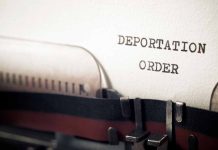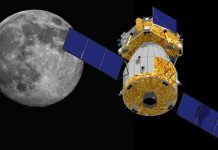
Australia denies Candace Owens a visa, igniting a fierce debate on free speech and national security.
At a Glance
- Conservative commentator Candace Owens’ visa application rejected by Australian government.
- Home Affairs Minister Tony Burke cites potential for discord as reason for denial.
- Owens plans to appeal decision, with tickets for her Australian tour still on sale.
- Debate ensues over free speech implications and protecting public order.
Australia’s Controversial Decision
In a move that has sparked intense debate, the Australian government has denied a visa to Candace Owens, a prominent U.S. conservative commentator. The decision, announced by Home Affairs Minister Tony Burke, has raised questions about the balance between free speech and national security concerns.
Burke justified the visa denial by stating that Owens’ presence is not in Australia’s national interest, citing her controversial comments on historical and social issues. The government’s concerns stem from Owens’ past statements on topics ranging from the Holocaust to slavery, which they believe could potentially incite discord.
Candace Owens Denied Visa To Australia, Immigration Minister Cites 'Capacity To Incite Discord' https://t.co/00wXQCFmGp #OAN
— One America News (@OANN) October 29, 2024
Owens’ Response and Planned Appeal
Candace Owens expressed surprise at the public disclosure of her visa cancellation, which she had expected to remain confidential. Despite the setback, Owens and her team are not backing down. They plan to appeal the decision, hoping for a favorable outcome that would allow her scheduled tour to proceed.
Interestingly, tickets for Owens’ 2024 Australian tour remain available for purchase. The organizers have assured potential attendees that refunds will be provided if the appeal against the visa decision is unsuccessful. This unusual situation highlights the uncertainty surrounding the outcome of the appeal process.
Free Speech Debate Intensifies
The visa denial has ignited a fierce debate about free speech and the role of government in regulating public discourse. Critics of the decision argue that it sets a dangerous precedent for limiting diverse viewpoints, while supporters maintain that it’s a necessary step to preserve public order and national security.
John Ruddick, a NSW Libertarian politician, has voiced his opposition to the ban, advocating for freedom of speech and open discourse. His stance underscores the complex nature of the debate, pitting concerns about potential social discord against the principles of free expression.
“In the age of the internet, it is absurd to try and prevent anyone’s views being heard. It is counter-productive state-sponsored vindictiveness against certain views. As Martin Luther King taught us, let freedom reign … especially the freedom to share ideas that some politicians and bureaucrats think are dangerous.” – John Ruddick
Owens’ Controversial Background
Candace Owens has built a significant online following through her outspoken conservative views and controversial statements on various social and political issues. Her criticism of Australia’s pandemic policies and opposition to the Black Lives Matter movement have previously drawn attention and criticism.
More recently, Owens has voiced concerns about the violence in Gaza, emphasizing her stance as a Christian and asserting that her principles take precedence over financial considerations. This position, along with her recent conversion to Catholicism in 2024, adds another layer to the complex public persona that has now become the center of an international debate on free speech and national security.
As the situation unfolds, all eyes will be on the appeal process and its outcome. The decision will likely have far-reaching implications for future cases involving controversial public figures and the delicate balance between free speech and national interests in Australia and beyond.
Sources:
- Candace Owens denied visa to Australia over comments about Jews, Muslims and her ‘capacity to incite discord’
- Candace Owens Denied Australian Visa Amid Government Concerns Over ‘Discord’






















